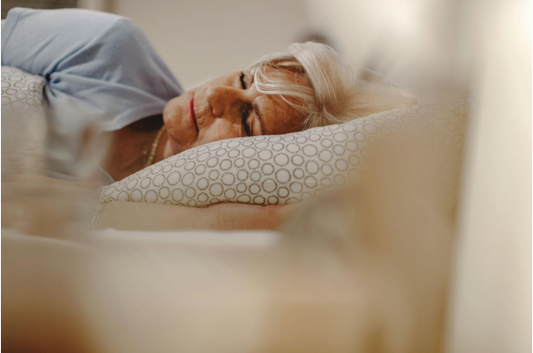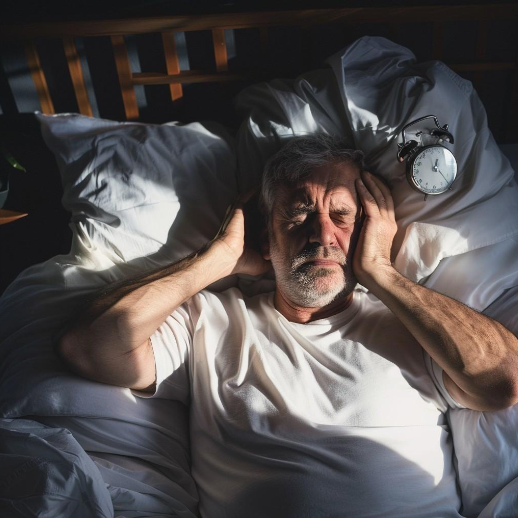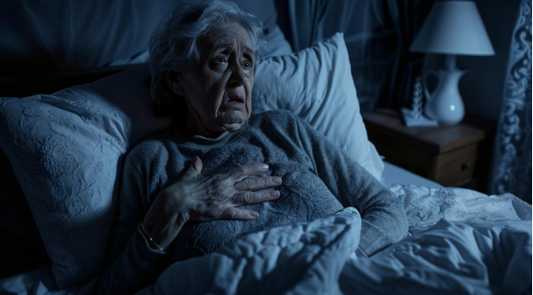It’s hard enough to get a good night of sleep when the world isn’t too busy and hectic, but now with so many distractions, restorative sleep has become almost impossible!
But not getting enough sleep also has more serious consequences than we think.
Without enough sleep, you’re risking potential burnout and going through life with way less energy.
Americans currently get an average of 7 hours of sleep per night – an entire hour less than the average in 1942.
Although 7 hours might not sound that bad, a whopping 40% of people are getting less than they need. This kind of fatigue can lead to short-term and long-term problems like memory loss, or joint weakness.
Is there a way to combat these sleep issues? Of course — you need to get some sleep!
We know falling asleep isn’t everyone’s specialty, so we put together the latest research of how you can finally get a good night of sleep in our newest blog series!
For now, read up on our first post for the 4 best things you can do to put those problems sleeping to bed for good!
Sleep Habit #1 to Improve Sleep: Keep Your Room Cool
Hot nights are often difficult to sleep through, especially when you already have problems sleeping. Waking up sweaty and sticky doesn’t help the case, either. You may wake up feeling groggy, unsure of the time, and frustrated because now you're going to be up for hours!
It’s been scientifically proven that the human body prefers sleeping in a cooler environment. Sleeping in a colder room at night can improve your sleep and even combat insomnia episodes.
If you're having trouble getting to sleep or staying asleep, lowering your thermostat can have many other benefits, including:
- Hormonal readjustment. Sleeping in a room with the AC on boosts the body’s levels of melatonin and Human Growth Hormone, two essential hormones for restorative sleep.
- “Good fat” body storage. Your body can get energy from good fats like monounsaturated fatty acids. A 2014 study revealed that men who slept in a cooler room (64.40 °F or 18 °C) had 70% more of that good fat, than those sleeping at 73.40 °F or 23 °C.
- Anti-aging properties. Today, more than 35% of Americans are sleep-deprived. Sleep deprivation affects many aspects of our life, but the most noticeable consequences are literally written on our faces. Lack of sleep, over time, turns into wrinkles, outbreaks, and dull skin. Who knew that lowering the thermostat could improve the appearance of your skin?
In addition to getting enough sleep, it’s also important to improve the quality of your sleep.
Sleeping in cold rooms will help you achieve this and make you look and feel radiantly healthy. In the end, you’ll learn how to sleep better and longer every night.
Sleep Habit #2 to Improve Sleep: Develop a Bedtime Routine
Bedtime routines are a simple way to help relax before going to sleep. If you have trouble falling asleep, a solid bedtime routine can help by making your body and mind know that it's time to wind down, which will help you feel tired.
A bedtime routine is a set of activities you perform in the same order, every night, in the 30 to 60 minutes before you go to bed.
Bedtime routines can vary, but often include calming activities like:
Humans are creatures of habit. Like any other routine, bedtime routines:
- Establish habits that help our brains recognize when it’s time to sleep. By performing the same activities in the same order every night, your brain comes to see those activities as a precursor to sleep.
- Reduce late-night stress and anxiety — the kind of worrisome thoughts that keep you up at night.
- Separate the day from the night, so you can clear your mind and body of the day’s stresses, to relax into a deep sleep.
Getting into bed is the final piece of your bedtime routine. The last thing you do before you go to sleep should be to try and fall asleep.
You want your brain to identify your bed as a place to sleep, and nothing else.
Sleep Habit #3 to Improve Sleep: Turn Off Those Phones
Many of us look for a quick distraction after turning the lights off and crawling into bed, so we check our cell phones. This is disastrous for a good night of sleep.
After a long day of browsing and refreshing our feeds, it’s time to put our phones away.
Numerous studies have shown that using your phone before bed is unhealthy and may cause sleep problems.
Since phone usage has increased by 54% in the past two years, it's important to be aware of this toll on our health.
So what real harm can phones cause for our sleep? Can these tiny devices really cause us more problems sleeping than we think? Take a look below:
- Interfere with melatonin production. Blue light emitted from a cell phone screen delays the production of melatonin, a hormone that controls your sleep-wake cycle. This makes it even harder to fall asleep and get up the next day
- Increased alertness at night. Chances are, when you "need" to respond to something at night (especially over email), the rage and anxiety surge up through your body keeping your brain alert. You may think that scrolling through social media will help calm yourself down, but in reality it does just the opposite.
- Compromised alertness the next day. Ever stayed up reading emails all night? By morning, you're sluggish and less awake for the day. No one wants to be tired and worn out all day! That late-night activity can even make you less efficient at work.
When using technology at night, it’s important to set some rules for usage closer to bedtime.
For healthier sleep, establish a bedtime routine that includes abandoning screens at least an hour before going to bed.
And even though phones are the most common source of blue light emissions, tablets and TVs emit blue light too, which can contribute to poor sleep.
One way to minimize your phone usage at night is by putting it in a different room and investing in an alarm clock. You can also reduce the number of notifications by configuring your phone for ‘night mode’.
Sleep Habit #4 to Improve Sleep: Manage Your Liquid Intake
Nocturia is a medical condition that involves urinating more in the night than you would typically. This often affects your sleep quality and energy levels during the day.
Drinking a large amount of liquids before going to bed can cause you the same symptoms as Nocturia, though some people may be more sensitive than others.
When you drink a lot of water before going to bed, your body has to work harder to produce urine.
You also have to get out of the comfortable position you’re in and eventually go pee. It’s no wonder that this causes you to stay awake — this is a horrible position to be in!
How can you get better sleep when your bladder feels full every night?
Although hydration is critical for your health, it’s wise to:
- Drink no liquids after 6pm or 1-2 hours before bed
- Consider using the bathroom right before going to bed
- Use the bathroom if you wake up in the middle of the night
These suggestions may decrease your chances of waking in the night and interrupting your sleep.
Restful Sleep: The Foundation of Your Health
If you want to be the best version of yourself, sleep is a must — and learning how to sleep better is essential.
When you get a good night of sleep, it can help with everything from improving your mood and productivity to even increasing muscle growth.
But if you're not getting enough restful sleep regularly, it may lead to serious health problems like diabetes or heart disease.
These 4 tips will help you get more sleep at night, so that you feel better during the day (and live longer).
If you need to improve your sleep hygiene, take the advice of your physician or consult with a specialist! Learn more at Fix My Sleep.




